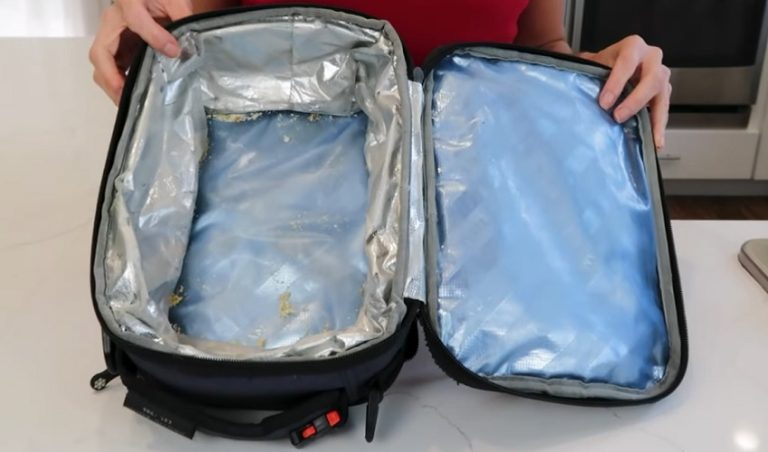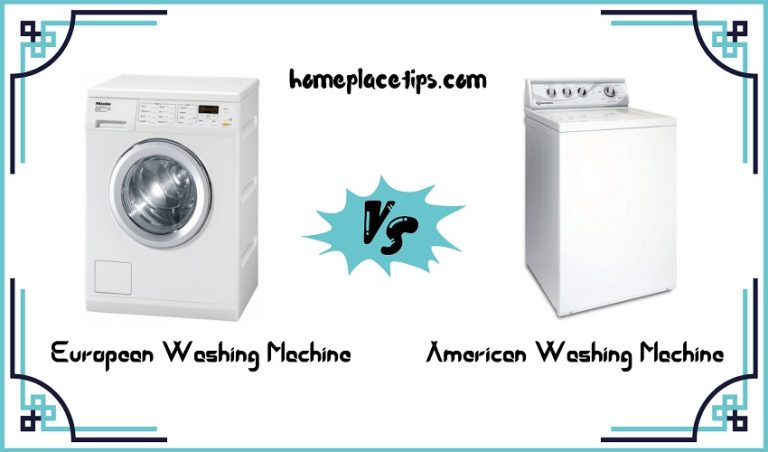Is It Illegal to Drain Washing Machine Outside – Know the Law
The permission to drain the washing machine outside depends on the rules and regulations of your area. Generally, in urban or suburban areas, legislation doesn’t allow drain washing machines as it leads to pollution.
On the contrary, in rural settings, there mightn’t be any restrictions for discharging the washing machine water outdoors due to fewer environmental concerns.
It is a common case that a washing machine produces polluted water that contains various types of contaminants, such as dirt, soap residue, microorganisms, and fibers from clothing. This pollution can harm aquatic life, vegetation, and even human health if the tainted water enters the drinking supply.
To avoid legal and environmental repercussions, it is essential to responsibly dispose of the wastewater by connecting the machine to a sewer line or using a designated drainage system. Remember, protecting the environment is everyone’s responsibility.
Environmental Impact
Draining a washing machine outside may seem like a convenient way to dispose of wastewater, but it can have significant consequences for the environment. Not only does it waste valuable water resources, but it can also harm the ecosystem and local water sources.
Potential Harm To Ecosystem
If you drain a washing machine outside, the wastewater containing detergents, fabric softeners, and various chemicals can find its way into the soil and nearby plants. These substances can disrupt the natural balance of nutrients and inhibit the growth of beneficial organisms.
Furthermore, these chemicals can be toxic to the small creatures that reside in the soil, such as worms and insects. These organisms play a vital role in maintaining soil health and nutrient cycling, so their decline can impact the overall ecosystem.
In addition to harming the soil and its inhabitants, the chemicals in the wastewater can also seep into nearby bodies of water, potentially affecting aquatic life.
Effects On Local Water Sources
One of the primary concerns of draining a washing machine outside is the impact on local water sources. The wastewater, which contains a mixture of chemicals, can infiltrate the ground and contaminate underground water reservoirs.
Contaminated water poses a threat to both human consumption and agricultural practices. It can be expensive and challenging to treat groundwater contaminated with a range of chemicals, making it unsuitable for drinking or irrigation purposes.
Additionally, if the wastewater drains into nearby streams, rivers, or lakes, it can exacerbate water pollution problems. The chemicals and detergents can alter the chemical composition and disrupt the delicate balance of these water bodies, threatening the well-being of aquatic plants and animals.
To prevent these environmental impacts, it is important to find alternative and responsible ways to dispose of washing machine wastewater. One option is to connect the washing machine to a dedicated drain pipe or a greywater recycling system designed to filter and treat the wastewater for reuse in non-potable applications, such as watering the garden or flushing the toilet.
Legal Implications
Many homeowners are unsure about whether they can dispose of water outside. It may seem harmless, but there are legal consequences to be aware of. Knowing your local laws and the penalties for improper water disposal is important to follow the rules.
Local Ordinances And Regulations
In most regions, local ordinances and regulations dictate how and where you can dispose of wastewater from household appliances like washing machines.
These regulations are put in place to protect the environment and public health. It is crucial to be aware of your specific region’s rules and regulations regarding the disposal of washing machine water.
Table : Examples of Local Ordinances and Regulations
| Region | Applicable Regulations |
| City A | Washing machine water must be disposed of through the sewage system. |
| County B | Reusing washing machine water for non-potable purposes is allowed. |
| State C | Draining washing machine water onto the ground is strictly prohibited. |
Penalties For Illegal Water Disposal
Engaging in illegal water disposal can lead to severe penalties. Authorities take such offenses seriously due to the potential environmental and health hazards associated with improper wastewater management.
The specific penalties may vary depending on your location, and it is advisable to seek information from local authorities for accurate details.
Generally, penalties can include fines, legal action, or mandatory compliance with regulations. Being aware of these potential consequences can help deter you from draining your washing machine illegally.
- Penalties for illegal water disposal:
- Fines ranging from $100 to $5000.
- Cease and desist orders.
- Legal action and potential court appearances.
- Compulsory compliance with proper wastewater management protocols.
By understanding the legal implications associated with draining a washing machine, you can take the necessary steps to ensure compliance with local regulations. Remember, being proactive in preserving the environment and public health is always the best approach.
Note: This information serves as a general guide. It is recommended to consult with local authorities and legal experts for precise regulations and penalties applicable in your area.
Alternative Solutions
Actually, we can suggest you two alternate solutions to drain your washing machine. Lets check them out!
Proper Ways To Dispose Of Washing Machine Water
Proper ways to dispose of washing machine water can be environmentally friendly and compliant with regulations.
- Use greywater systems to recycle water for outdoor use instead of draining it outside.
- Direct the water to a designated area in your yard where it can be absorbed by plants.
- Install a sump pump to pump water outdoors without causing any legal issues.
Use Of Greywater Systems
Utilizing greywater systems is an effective way to repurpose washing machine water for non-potable uses.
- Greywater systems filter and treat the water, making it safe for irrigation or toilet flushing.
- These systems help conserve water and reduce the strain on freshwater resources.
- Implementing greywater systems can be a sustainable solution to manage washing machine water efficiently.
Current Practices
By understanding the common misconceptions and following responsible practices for water disposal, individuals can ensure compliance with local regulations and environmental responsibility.
Common Misconceptions About Outdoor Drainage
- Assumption: It’s legal to drain washing machine water outside.
- Belief: It’s harmless to release detergent-laden water into the environment.
- Misconception: Draining outside would not cause any environmental impact.
Followed Practices For Responsible Water Disposal
- Adhering to local regulations and restrictions on outdoor water
- Utilizing gray water systems or reusing the water for outdoor
- Seeking professional guidance for proper wastewater
Case Studies
Draining your washing machine outside may be illegal, as it can harm the environment and violate local regulations. It’s important to check your local laws and find alternative methods to dispose of the wastewater safely.
Examples Of Legal Actions Taken For Improper Water Disposal
Improper disposal of washing machine water can have serious legal ramifications.
In 2018, a homeowner in California was fined $10,000 for draining washing machine water into a creek, violating environmental laws.
The legal consequences of such actions can be severe, with fines and potential lawsuits being commonplace.
Impact Of Violations On Communities
Breaking water disposal laws can harm communities. In Texas, improper disposal from washing machines contaminated a local water source, creating a health risk for the community.
These violations are not only bad for the environment but also endanger the well-being of nearby residents.
Public Awareness
There is no doubt on how washing machine polluted water can damage the eco-system and your surroundings.
However, to prevent that kind of issues, creating public awareness can significantly help in educating people about water conservation and its importance in preserving the environment.
Educational Campaigns On Water Conservation
Educational campaigns aim to educate individuals about water conservation and its importance in sustainable water usage.
- Provide information on efficient washing machine usage.
- Teach methods to reduce water waste during laundry.
- Raise awareness about the impact of draining washing machines outside.
Community Initiatives For Sustainable Water Management
Community initiatives aim to promote practices that support sustainable water management within neighborhoods.
- Encourage the installation of rainwater harvesting systems.
- Organize workshops on water conservation for community members.
- Implement local water-saving campaigns to reduce wasteful practices.
Frequently Asked Questions
Q: Is Draining A Washing Machine Outside Legal?
Ans: Yes, it may be illegal in some areas due to environmental regulations. Check your local laws or consult a professional plumber for guidance.
Q: What Are The Potential Consequences Of Draining A Washing Machine Outside?
Ans: Improper drainage can lead to pollution, fines, and environmental damage. Ensuring compliance with local regulations and seeking proper disposal methods is crucial.
Q: Can Draining A Washing Machine Outside Harm The Environment?
Ans: Yes, it can harm the environment by causing pollution and contaminating soil and water sources. It’s important to use proper drainage systems to minimize ecological impact.
Q: How Can I Responsibly Dispose Of Washing Machine Water?
Ans: Consult with a local plumbing professional to discuss proper drainage methods. They can guide environmentally friendly and legal disposal options.
Final Point
Let’s ensure we comply with local regulations when draining washing machines outside. Protect the environment and prevent potential legal issues.
Consult local authorities for guidelines to maintain a sustainable and lawful practice. Remember, it’s essential to be mindful of our actions for a better tomorrow.
As an Amazon Associate I earn from qualifying purchases.
- Can You Put Clouds Shoes in the Washing Machine? With Tips & Tricks - April 10, 2024
- European Washing Machine vs American – History, Design, Technology - March 27, 2024
- Can You Put Boxing Gloves In The Washing Machine? – Expert Tips - March 25, 2024


![Whirlpool Duet Washing Machine Error Codes [Explained 2024]](https://homeplacetips.com/wp-content/uploads/2023/12/Whats-the-Difference__-GE-Front-Load-Laundry-Sets_000003581-1-768x432.webp)


![Why Your LG Washer Sounds Like a Jet Engine! [Reasons 2024]](https://homeplacetips.com/wp-content/uploads/2023/12/Top-5-Best-Washing-Machine-2023_000009918-768x432.webp)

